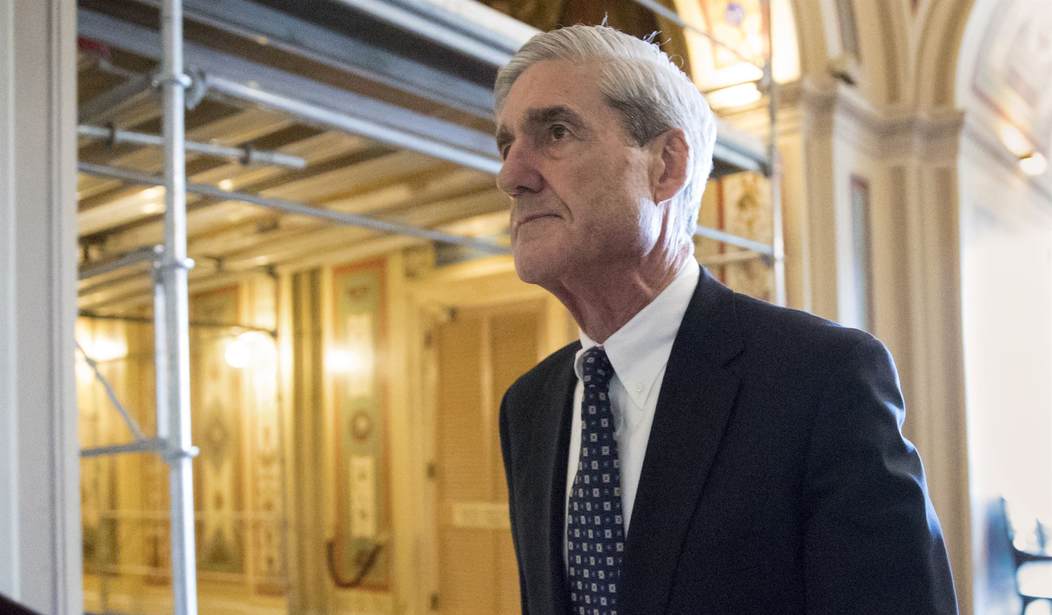The nation has paused this week from its toxic political battles to remember the kindness and gentleness of President George H.W. Bush. He was kind to Bill Clinton, who defeated him in 1992, and to Ross Perot, whose unusual entry into the presidential race that year siphoned conservative voters away from Bush and enabled Clinton to amass a majority of electoral votes with only 43 percent of the popular vote. The Bush I knew was the post-presidential one, who, by all appearances, harbored no bitterness or sense of defeat.
That was the consistent theme running through nearly all the reminiscences we have heard since he died late last week. Those comments about Bush's character are, of course, being contrasted with the more in-your-face president we have today. To his credit, President Donald Trump has kept a low profile since Bush's death, in all areas but one. He continues to pound away at his view that the investigation of him and his campaign by Department of Justice special counsel Robert Mueller is a hoax and a witch hunt.
To further that view, the president has dispatched his lawyer Rudolph Giuliani to make essentially two arguments. First is that Mueller's work is a solution looking for a problem and that because there has been no crime, we don't need a special counsel to investigate. This is a common refrain from criminal defense lawyers who represent public figures being investigated outside the normal DOJ channels. Giuliani's second argument is that Mueller knows he has discovered no crime and will soon close up his shop.
I am not of the view that Mueller is on a fishing expedition or is about to go home. First, he has a few dozen defendants whom he has indicted and needs to try -- even though most are Russians indicted for hacking and interfering with the 2016 election campaign and will be tried in absentia.
Second, he keeps acquiring new evidence. Last week, when Trump's former personal lawyer Michael Cohen pleaded guilty in federal court in Manhattan to lying to Congress about Trump's negotiations with Russian authorities during the 2016 presidential campaign to build Trump Tower Moscow, Cohen claimed he lied so as to further Trump's political message, which has been one of zero relationships with Russian officials during the campaign.
Recommended
Yet the most important words Cohen uttered were not those stated during his 10-minute guilty plea but those stated to Mueller's FBI agents and prosecutors during the 70 hours that they interrogated him. Whatever he told them and they were able to corroborate, they caused his prison exposure to be reduced from somewhere between 15 and 60 years to six months. Such a reduction requires a substantial quid pro quo. What was it?
The third reason for rejecting the belief that Mueller will soon shut down is Mueller's declaration to a federal judge in Washington last week that Paul Manafort, Trump's campaign manager during the time the Trump campaign had 87 communications with Russians, lied to FBI agents in defiance of his commitment to be truthful to them made during his guilty plea in federal court in September. Mueller will no doubt seek to indict Manafort for each of those lies and then try him -- a trial that could not occur until mid-2019.
As if all that were not enough to dispel the Giuliani-fueled myth that Mueller will soon end his work, recall that Mueller has repeatedly expressed a desire to interrogate the president in a one-on-one interview or before one of his grand juries. Neither has occurred. Mueller has a toolbox of techniques to bring either of these about, and he has yet to employ the most potent contents.
Rudy Giuliani is a very talented lawyer. He has assumed two roles for his most famous client -- as legal strategist and as cheerleader. As a legal strategist, he brings a wealth of experience in federal criminal procedure, but he has no serious experience defending a person accused by the feds -- hence his morphing into the cheerleading role, in which he has candidly acknowledged to friends that his goal is not to dissuade the special counsel from pursuing his client but to influence public opinion so that if an indictment or impeachment of Trump were to come down, it would generally be unacceptable to the public.
Yet the more he cheerleads the more he undercuts his reputation in the legal, judicial and law enforcement communities. That's because when he was the U.S. attorney in Manhattan, he excelled at utilizing the most extreme and aggressive prosecutorial techniques that the courts permitted -- the very ones he is now attacking Mueller for using.
In the 1980s, Giuliani dispatched FBI agents to arrest corporate chieftains with television crews in tow. He burst into courtrooms, interrupting trials, to serve lawyers with subpoenas while they were trying other cases. He even wired a 10-year-old girl with a tape recorder and tutored her to entrap her mother in a drug case. He once arrested every person who was in New York's Washington Square Park on a weekday afternoon during a drug sweep -- innocent and guilty alike. He got away with it.
Federal criminal prosecution is not beanbag. The courts have ruled many times that prosecutors, FBI agents and police may lie, cheat, threaten, intimidate, coerce and deceive to extract cooperation and obtain evidence from witnesses. This is the dark side of the criminal justice system. It requires a strong stomach. It can be used against even the president.
Yet those untried absent Russians -- the ones scooped up in Mueller's witch hunt -- were punished without trial. They were barred from using U.S. financial institutions by President Trump in retaliation for their alleged interference in the 2016 election. A witch hunt for me, but not for thee.
























Join the conversation as a VIP Member